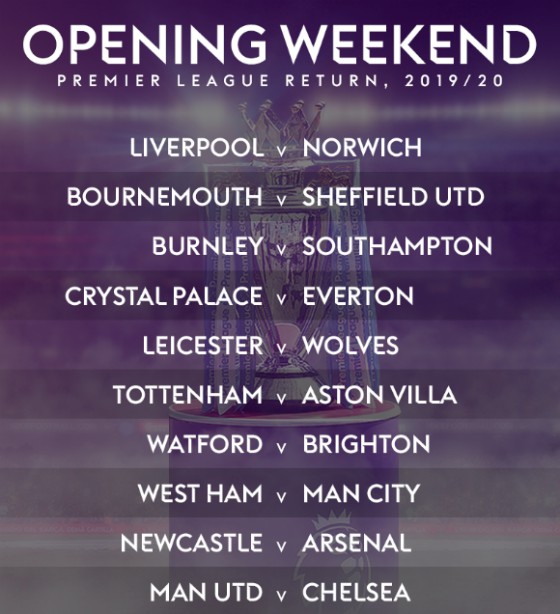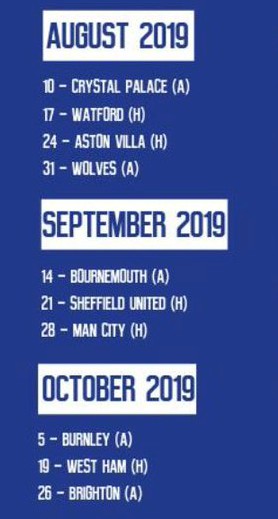The summer break is finally over and it’s time to kick off the Premier League season 2019/2020. This also means the start of the Fantasy Premier League game, which is growing in popularity every year. There are over five million managers competing against each other.
If you have ever played FPL before, you are probably familiar with the early round disappointments. Most of the managers give up after 10 rounds due to early mistakes, which tend to kill motivation. In this article, you’ll find some strategy tips on how to start the season better. Maybe this time you are the one leading the private leagues at Christmas?
The common newbie mistakes
There is one big mistake almost every FPL manager does in the beginning. That is the lack of long-term thinking.
Newbies tend to build their team by picking their favourite players from their favourite clubs. It is also common to pick players from teams, which have easy opening day fixtures.
The reason behind these selections is psychological. People like to cheer for their favourite teams and players. They don’t like to pick some boring players from lower-midtable teams they never follow.
It’s also understandable that you want a good start. Hence, FPL managers tend to check players even from the opening game so they can be ahead of the pack from the start.
This is how you might get success for one or two rounds. But you are nowhere near the top positions after two months. Next, we’ll tell you how to do that.
The key to success is long-term thinking
FPL is a season game, which translates to a long-term competition. It’s basically like running a marathon. It is no use to get success in the opening hundred meters if you won’t last the whole race.

FPL rules are also made to support long-term thinking. There is only one free transfer per week, which means you can’t afford to make poor choices. If you need to transfer constantly 2+ players in or out of your team, you don’t know what you are doing. So, how do you make a long-term approach to FPL? By using tools like this innovative FPL Fixture Difficulty Tracker.
The tool will show you all PL fixtures six weeks in advance and makes it possible to plan your team for a longer period and see which teams have strong fixtures not only next week but also next month. For example, here are Everton’s opening ten league fixtures- the Toffees play only one of the “big six” in the first three months of the season. Given the amount they’ve invested in the market, with the likes of Alex Iwobi and Moise Kean bought to support existing stars like Richarlison, buying a good Everton player initially makes sense.

The fixture tracker by AFT mentioned above has also a significant advantage to competing options because it gives you precise numeric values for expected goals and clean sheet probabilities. You can make accurate calculations between teams and make the best choices.
Trust the probabilities and don’t give up too easily
The second major mistake is to keep switching your players because of a good or bad result. What often happens is that an unknown player scores goals in the opening rounds and becomes HOT. All of sudden everyone wants to sign him even if the upcoming fixtures might be horrible.
These mistakes cost you so much for multiple reasons. First, you lose valuable points because of poor selection. Second, you lose an opportunity to get ahead of your friends who make this mistake.
You shouldn’t also give up your long-term plan because of one or two poor matches. If you trust a striker with suitable fixtures ahead, keep him even if he hasn’t scored yet. The key is to see what happened in the matches.
If your striker had shots or he created chances for his teammates, points will come. You’d only throw out a trusted player if he didn’t perform as expected. Maybe he is still tired from the pre-season, a new manager makes him play in a wrong position etc.
Look behind the results!
Use the Wildcard early if you messed it up
The start of a new season is always difficult, even if you had a good long-term plan. There are always many unknown factors related to new managers, new signings or new formations. You simply might make some bad choices because you had the wrong information.
If you want to play it safe, use players from unchanged teams. If the manager hasn’t changed and your player has familiar faces around him, it’s unlikely there’s going to be a massive change in his performances.
But, if you mess it up, just use the Wildcard in the beginning. It’s no point to take massive minus points and change half of your team after a few rounds. If it looks like your get hit by injuries and poor choices, use the Wildcard. This way you get in a touching distance of your private league leaders and won’t lose your motivation too early.
Good luck!